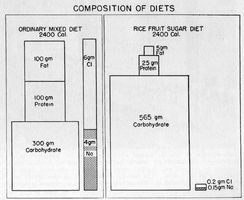ecstatichamster
Member
- Joined
- Nov 21, 2015
- Messages
- 10,530
An excellent video memoir of a Harvard trained MD who knew Kempner and documents Kempner’s work.
View: https://youtu.be/8Xkr8Zh-s1s?si=yXQ6ylzLYmiXlCrr
Remember, Kempner’s diet cured terminally ill patients with extremely high blood pressure, end stage kidney disease, heart disease. Pills and crutches thrown away, people recovered instead of dying. And huge weight loss that was primarily water weight shed, taking the pressure off the heart.
Diet is rice and fruit.
The doctor says this diet is like penicillin for someone at death’s door who recovers completely. And it takes only 2 - 3 weeks for people to feel so much better.
Diet is very low sodium but doesn’t seem to be a problem. Low protein isn’t a problem either.
This is similar to the potato diet that is faddish in some people today.
Don’t you wish we had physicians like Dr. Neelon and Dr. Kempner today?
View: https://youtu.be/8Xkr8Zh-s1s?si=yXQ6ylzLYmiXlCrr
Remember, Kempner’s diet cured terminally ill patients with extremely high blood pressure, end stage kidney disease, heart disease. Pills and crutches thrown away, people recovered instead of dying. And huge weight loss that was primarily water weight shed, taking the pressure off the heart.
Diet is rice and fruit.
The doctor says this diet is like penicillin for someone at death’s door who recovers completely. And it takes only 2 - 3 weeks for people to feel so much better.
Diet is very low sodium but doesn’t seem to be a problem. Low protein isn’t a problem either.
This is similar to the potato diet that is faddish in some people today.
Don’t you wish we had physicians like Dr. Neelon and Dr. Kempner today?
Last edited:


